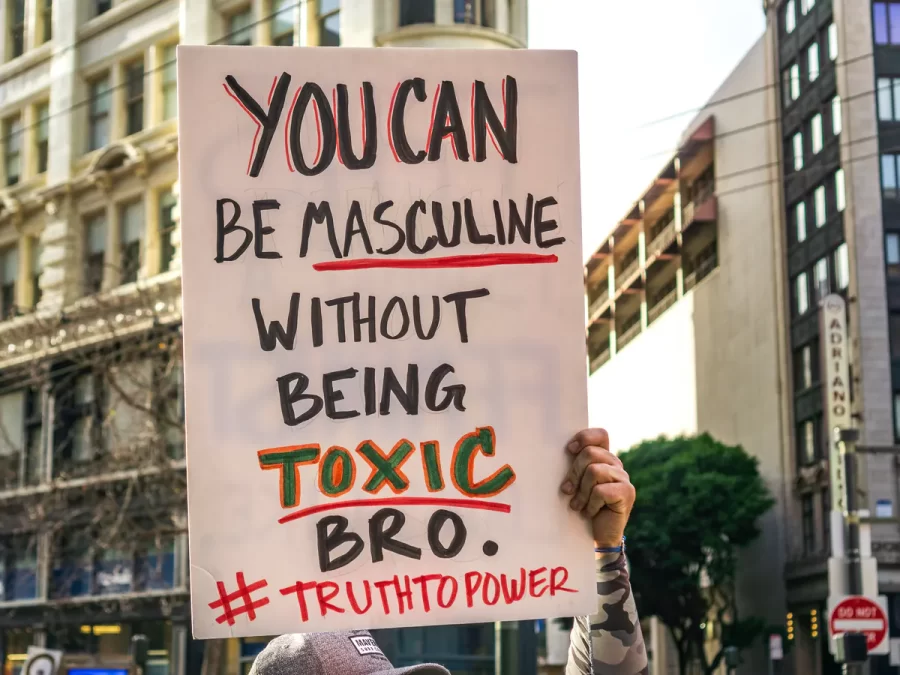The Truth about Toxic Masculinity
For hundreds of years, men have been taught to suppress their emotional sides and feel uncomfortable or unsafe when expressing themselves, and that’s time to change.
For thousands of years, gender roles have played a detrimental part in our society. We are wired to think that men overpower women and are superior figures. We are told that males are stoic and emotionless and because of that, they are strong warriors. The falsity in this ideal needs to stop. Men should be allowed to cry without being made fun of and should be accepted as emotional beings just as much as women. It’s not only a damaging occurrence because of its negativity and societal pressures, but it can also be extremely harmful to a man’s health and well-being.
“Most men don’t know how to cope when they experience traumas due to this stigma, which can be very harmful,” junior Landon Ehlinger expressed.
Crying is a very healthy way of expressing one’s emotions and being vulnerable is an important skill to learn in youth. From a young age, fathers teach their sons to suppress their emotions. “Be a man!”, they say, and because of this, there are major issues that men face from bottling up their emotions. Crying allows the toxins in one’s body to be flushed out and releases stress hormones. When people are told to swallow their tears, it does not go away and unfortunately just turns into anger. One statistic shows that 99% of men are mass shooters, which has a lot to do with toxic masculinity and suppressed anger. If people cannot get out their emotions in a socially accepted way, they have no choice but to express them with anger or hate.
“It’s sad that some men feel like they have to hold in their emotions. It leads to outburst anyway and can cause a lot of problems in relationships,” junior Eli Winder commented.
Along with anger, stress is one of the issues that suppressing feelings can cause. It can spark extreme health problems such as chronic pain, migraines, cardiovascular disease, or even cancer. According to the Pan American Health Organization, 1 in 5 men die under 5o due to toxic masculinity-related causes. Mental Illness is also widely affected when it comes to toxic gender roles.
Gender stereotypes start as soon as early childhood and are taught by the parents. The girls are always raised to be caregiving, nurturing, mothers, and the sons are raised to be tough protecting fathers. Raising children differently can stifle the way they see the world and affect their relationships in the long term.
“Although gender norms may be enforced by parents as a way to protect their children, what they don’t realize is how much this can effect their child’s emotional potential and relationships,” sophomore Jeremiah Day commented.
Men who buy into traditional gender norms are less likely to seek out mental health support when they need it. Mental illnesses such as depression, anxiety, and PTSD can have major involvements in male lives. Men often do not seek help on their own and because their symptoms are masked by accepted emotions such as anger, male mental health issues are underdiagnosed. That causes the toxicity to raise in men and ultimately puts them at high risk of suicide attempts.
“It is completely human and normal for men to be more emotional, it is 2022 after all,” junior Alicia Elliot explained.
Today, our future generations have made major improvements in breaking stereotypes and gender norms. Men should have a safe space to feel their emotions without feeling judged or pressured. If we allow all genders to express their identities in a healthy and “non-toxic” way, there will be a positive shift in society today and for our future children too.

Hi, my name is Ella and I'm a junior here at AAHS. I prefer writing activity based articles, because I love attending school events. I love Ziggi's coffee,...













